
“Lukashenko, like Putin, is an aggressor and one day they must face justice,” said Miriam Lexmann, a Slovakian member of the European Parliament for the centrist European People’s Party group. “However, we must also ensure that as we continue to support the Ukrainian people against Russian aggression, we must also double our efforts to support the Belorussian people in their desire for freedom.” The war in Ukraine and the brutal leadership of Belorussia are just two of the many things going on in the world about which she has very firmly-held views. She is deeply involved in a wide variety of issues as a member of the European Parliament’s Committee on Foreign Affairs, Committee on Employment and Social Affairs and the Delegation for Relations with Belarus. These are currently not very cordial: Lexmann has made plain in speeches and debates that she is no fan of Belarus’s Kremlin-loving dictator, Viktor Lukashenko, who seems to act more like Vladimir Putin’s obedient lapdog than the leader of an independent country. She has also taken a tough line over China’s brutal treatment of the Uighur people who live (or lived) in that country’s Northwest region. Oscar Wilde once said that: “A man cannot be too careful in the choice of his enemies.” In Lexmann’s case, it seems, she will take on any person, body or government that appears indifferent to the needs and well-being of a person or group of people, which suggests a lack of regard for who is likely to consider her an enemy. It was Britain’s wartime leader Winston Churchill who said: “You have enemies? Good. That means you’ve stood up for something, sometime in your life.” She certainly has, and has been condemned for her words and actions, but only, it seems, by the kinds of people involved in subjugating others and inflicting his or her will on them.
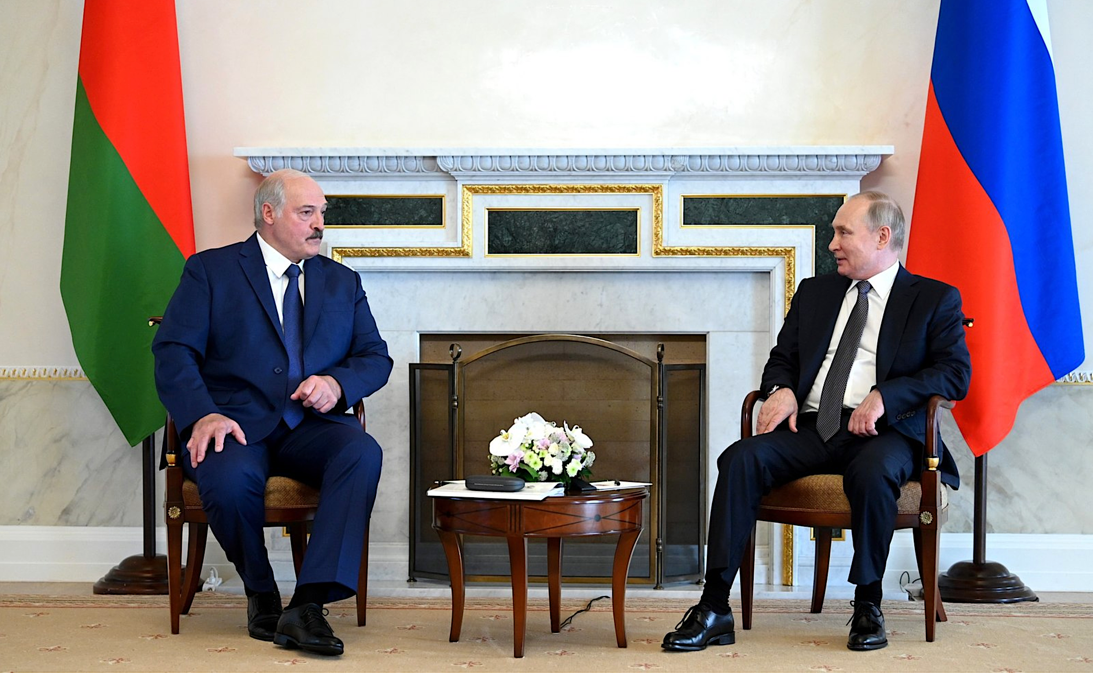
Miriam Lexmann could be said to owe her seat in the European Parliament to Britain’s bizarre (and very narrow) decision to quit the EU. The redistribution of parliamentary seats once the UK delegation had gone created the vacancy into which she stepped. Prior to that, she had been active in a number of civil society movements engaged in the transition of Central and Eastern European countries from Communism. Lexmann worked for a while for the often-underrated Council of Europe on civil society development programmes, mainly dealing with the former Soviet Union countries and the Western Balkans. She is a keen fighter against deliberate disinformation and its impact on liberal democracy. Since 2015, Lexmann has been running the International Republican Institute’s Beacon Project, whose aim it is to support better transatlantic dialogue as a means of defending her political policies against threats, wherever they may originate, at home or abroad.
Lexmann calls herself a “Christian Democrat”, which implies membership of Europe’s centrist political grouping, but in her case the religious connection – the “Christian part, in other words – is not just a convenient label. She really means it and has had relatives who died for their beliefs. “I would like to mention my great-uncle, a Catholic priest and a Dominican, who refused to sell his soul to any tyrannical regime,” she wrote on the website of the Hong Kong Free Press (unsurprisingly, freedom for Hong Kong is another of the causes for which she campaigns). She went on to explain more about her great uncle, for whom the word ‘great’ seems unusually apposite. “Risking his own life, he saved lives of the Jews during the Second World War. Later he died, aged 52, in a communist labour camp, refusing to give up his faith, the source of what he saw as his internal freedom.”

On the same website, she also praised the courage of her fellow countrymen Silvester Krčméry and Vladimír Jukl, whom, she wrote, “despite 14 years imprisonment still had the courage to build a strong base for an underground Church. These structures – secret meetings for prayers and talks and informal spiritual, religious, and political education— helped create another important pillar for our freedom today: hundreds of people across the country who became internally free.” She mentioned that it was the work of Krčméry and Jukl that led to the famous Candle Demonstration in 1988 in support of religious and political freedoms. The demonstration was planned by Marián Šťastný, executive vice-president of the Slovak World Congress and his associate Paul Arnold of Switzerland.
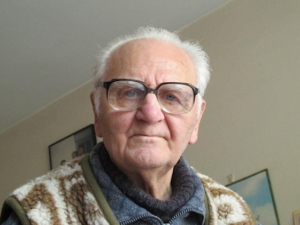
The demonstration was, of course, brutally suppressed at the time, but Lexmann points out that it had been worthwhile: in 1990, multiparty elections saw the beginning of moves to turn what was still Czechoslovakia into a market economy, but the marriage couldn’t last much longer, and the Czech Republic and Slovakia agreed to a divorce. Despite early difficulties with a weak economy and high unemployment, but the early 21st century things were improving and in 2004, Slovakia joined the EU and five years later adopted the euro as its currency and it also joined NATO. The country began to enjoy freedom of thought and freedom of religion.
If you’re doubtful about the importance of religious observance in a political struggle you have only to look back to the time of the Anglo-Saxons, when the death of one king and the evolution from one religion into another changed a country (in this case England) hugely and permanently. Mercia’s King Penda inflicted huge damage to Christian Northumbria, according to the Venerable Bede, turning Mercia into the most powerful kingdom of the time, in the words of Marc Morris’s excellent book, “The Anglo-Saxons”. The book says that Bede referred to the Mercians as “ignorant idolaters”, although he grudgingly acknowledged that Penda was “exceptionally gifted as a warrior.”
| Decisions, divisions and derisions
There are various versions of the anecdote about a comment supposedly attributed to the Soviet leader Joseph Stalin, who, when asked if the Pope should be invited to a peace conference in Tehran, is said to have replied: “How many legions has the Pope?” The person supposedly posing the question has been said to have been Winston Churchill, South Africa’s Jan Smuts or the US President of the time, Franklin D. Roosevelt, among several others. It depends upon who is telling the story. It’s almost certainly an exchange that didn’t happen, but the fact that it was recalled and written about (in the US media, first of all) suggests that the Pope’s political power was seen by some, at least, as not inconsiderable. It also acknowledges that however many legions the Pope may have had at his disposal, at least in terms of moral strength, Stalin knew that the Soviet Union had more. But times have certainly changed and “Uncle Joe”, as he was often called, would not have everything his own way today.
But it’s not Lexmann’s thoughts and opinions about Belarus that have led to her being sanctioned by the Chinese government. “The totalitarian apparatchiks of the Chinese Communist party continue to suppress and destroy human freedom and dignity,” she said in a speech at the European Parliament. “In the case of organ harvesting, as with forced labour, they even make profits from their crimes against humanity.” Lexmann thanked the Independent Tribunal for its work looking into forced organ harvesting. Lexmann gave a lot of detail, much of it unpleasant and generally unpalatable, in speaking about what the Chinese Communist Party, the CCP, has been doing.
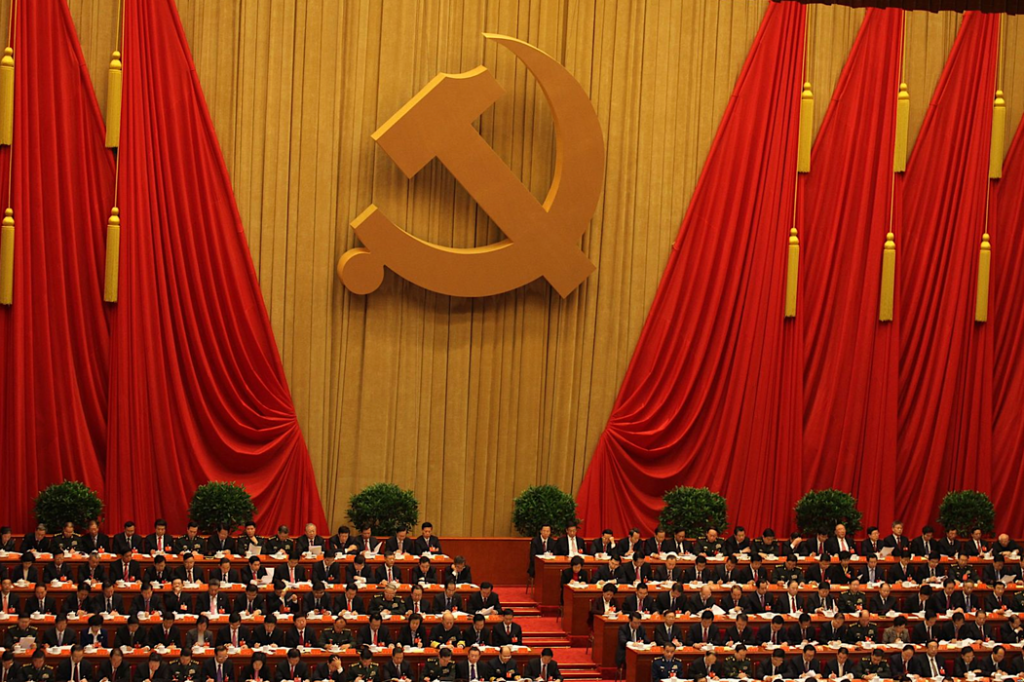
Today, the CCP has been using forced organ harvesting to target dissidents to their regime – ethnic, religious or other minorities – such as the Uighurs, Tibetans, Muslims, Christians, political prisoners, or the Falun Gong practitioners. Lexmann told her fellow MEPs that the practice is part of a system of oppression used by the CCP against those it sees as dissidents. “Nobody in China is safe,” she said, “For too long we have remained silent about the CCP’s widespread crime. Today, it is time to investigate these crimes, and for us to do all in our power to stop these abhorrent crimes.” Few would disagree with that sentiment, although the government in Beijing certainly does, of course, and has imposed sanctions on Lexmann for her words. Hers is one of several names on Bejing’s list of those to be targeted. China seems able to do what it likes to its own citizens but it is more thin-skinned than an elderly maiden aunt whenever it is criticised.
The Global Times lists a number of “provocations” used by Beijing to justify its sanctions. “China’s sanction list includes two main types of subjects,” it reports, “first, parliamentarians promoting anti-China proposals concerning Xinjiang and scholars giving baseless “evidence” for their accusations against China; and second, EU’s human rights agencies or organizations interfering in China’s internal affairs for a long time.”
According to Cui Hongjian, director of the Department of European Studies at the China Institute of International Studies, “The response is a precise – and even harder – strike back at the EU’s sanctions over Chinese officials for so-called ‘human rights abuses in Xinjiang,” he told the Global Times. He goes on to complain that: “Instead of contributing to the bilateral relations between China and Europe, these EU parliamentarians and institutions continued to lie and deceive the world by spreading rumours and continually propagating strongly prejudicial agendas and narratives against China.”
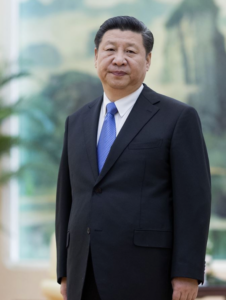
He claims to be quoting ‘experts’, but without identifying them. I suppose we must assume them to be members of the CCP and close to the government; apparatchiks of some sort, in other words. After all, most people would argue that these “strongly prejudicial agendas” are fully justified. China is huge, cares nothing for human rights or the opinions of anyone who is not a member of the CCP and it seriously mistreats its own citizens, it seems, to the point of selling off their organs for profit. Let’s face it, Lexmann is never going to make it onto Xi Jinping’s Christmas card list.
So, what effect will these targeted sanctions have? Well, they won’t make the victims change their minds, so they certainly won’t be effective. The issue was discussed at a conference in April 2021 organised by the Center on the United States and Europe and the Brookings-Robert Bosch Foundation Transatlantic Initiative. For the European Parliament, Lexmann was joined by German Green Reinhard Bütikofer and there were others taking part, too. China blamed its actions against the EU, the UK, the United States and Canada as being in response to sanctions they had impose on various Chinese officials linked to human rights abuses in Xinjiang. The panellists agreed that China’s response proves that “the CCP fundamentally misunderstands both democratic governance and the ‘mood’ towards China in Europe.” According to Bütikofer, the Chinese government never really understood what the EU-China Comprehensive Agreement meant to Europe. The Chinese believed, he said, that they had finally succeeded in “driving a wedge between the European Union and the US”, seeing it as “a great political gift from the European side to Xi Jinping.”
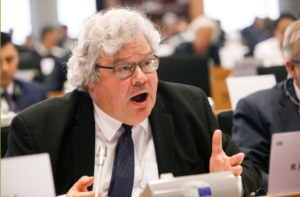
It seems that China’s diplomats don’t really understand diplomacy at all; to them it’s all a war game, which must have winners and losers. Lexmann told the meeting that democracies often make the mistake of believing that economic cooperation will encourage regimes to follow democratic principles, but “totalitarian regimes have learned how to use economic cooperation to support the regime.” The West shows a sign of friendship and non-aggression, and the totalitarian regimes simply laugh, deriding our naivety.
| Smoke gets in your eyes (and everywhere else)
As Lexmann told the European Parliament, “Across the world, Communist totalitarianism is responsible for some of the worst crimes in human history. These crimes are real, and they are still occurring today.” Rather less so, of course, than back in the bad old days of a divided Europe. Even so, with so many former Communist states now enjoying a measure of freedom, there will always be tyrants keen to stamp their seal on free countries. “Let us not forget that many European states still continue to suffer the consequences of communist totalitarianism,” Lexmann told a meeting at the European Parliament. “Murders, terror and oppression, communities destroyed, families torn apart, no basic freedoms. These are but some of the deep traumas left upon us.”
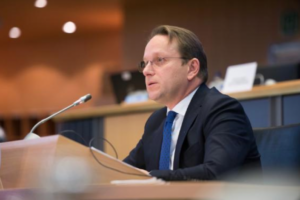
Of course, we must not forget Ukraine, nor the pain and terror inflicted on that country by Russia, whose leader seems not to acknowledge the existence of its neighbour and former satellite, and certainly not as an independent country. “How we respond to Putin’s aggression against Ukraine and its people today will define the world we will live in in the future,” Lexmann told her fellow MEPs. “Ukraine is fighting for our values today and we must do everything we can to end the aggression and restore peace.” She reminded MEPs (as if they really need much reminding in today’s climate) of the huge numbers of Ukrainians and their families seeking refuge from Russian brutality. “Nowadays, there is often talk about the polarization of society,” Lexmann said. “But now we are witnessing that people can unite to help those who need it. I am proud of us, both Slovaks and other Europeans, to welcome people in need with an open heart.” Some of those European hearts seem more open than others in these times of rising nationalism.
It’s not only the issue of freedom of thought that is causing concern. Take the case of Serbia, where Chinese influence has been growing. Nothing wrong with that, you may think: a poor country being helped by a very rich one. But not all China’s investment can be viewed in a positive light. That’s why Lexmann and German Green MEP Reinhard Bütikofer initiated a letter, since signed by twenty-six MEPs, expressing their concern to Oliver Várhelyi, the European Commissioner for Neighbourhood and Enlargement Negotiations, about the environmental damage resulting from several heavy industry projects by companies that are Chinese-owned.
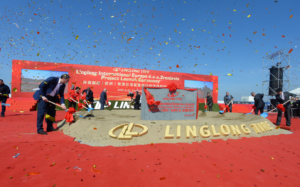
The letter especially draws attention to several Chinese heavy industry investments in and around Smeredovo, Bor and Kostolac and also the Shangdong Linglong tyre factory in Zrenjanin. The letter urges the Commissioner to remind the Serbian government of the legislation to which it should adhere, as well as various EU laws relating to the accession process. Serbia applied for membership in 2009 but negotiations only began with the electoral defeat of Slobodan Milošević in 2000. With him out of the way, the EU officially recognised the Balkan states as serious potential membership candidates. This followed the EU-Western Balkans Summit in Thessaloniki in June 2003. If Serbia is to become a fully-functioning member state, it will have to clean up its act, not only in terms of its politics but also literally in its care for the environment, and in that respect, China isn’t helping. Bütikofer, who also chairs the European Parliament Delegation for Relations with China, points out that Chinese investments in heavy industries have raised air pollution levels to dramatic new heights whilst also endangering the quality of drinking water. There are already dangers for those living closest to the factories but, he says, no foreign investor should be allowed to simply by-pass EU rules, because pollution and environmental damage don’t respect international borders.
Even so, most Serbians, it seems, look favourably upon China, especially for its contribution of medicines when the COVID outbreak began, although the EU provided more money. However, there is growing concern around the world about illegal “police stations” that China has set up in several countries. Ostensibly, they are to assist Chinese citizens living abroad in the renewal of such things as driving licences, passports and other documentation, but there is evidence that they have also been targeting dissidents against Xi’s regime, too. Miriam Lexmann has certainly drawn attention to their existence through her speeches at the European Parliament: “non-democratic regimes including Russia, Iran and the Chinese Communist Party continue to seek to weaken and divide our societies,” Lexmann warned.
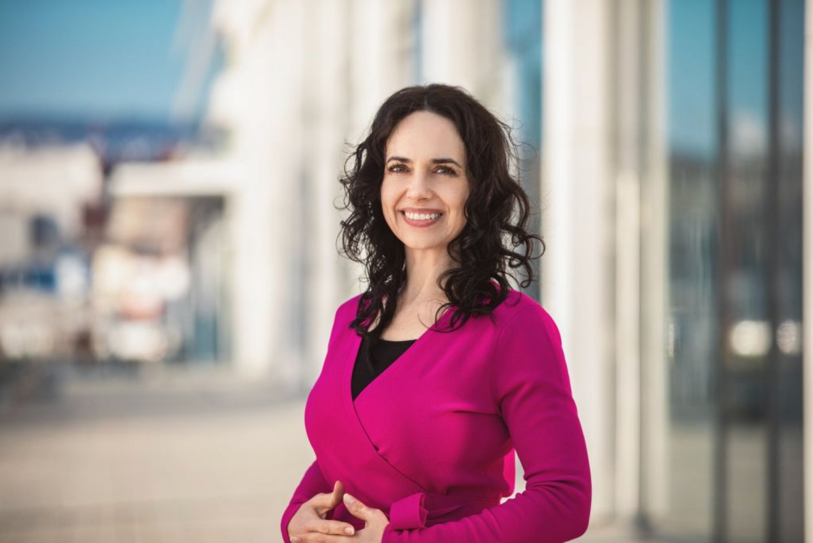
“Their use of hybrid threats, including disinformation, cyber or espionage, shows a wider context of operations aiming against us,” she said. “The shocking revelation about the illegal Chinese police stations operating across 16 EU Member States show that we are not only lacking an effective response, but that we even close our eyes to serious threats.” Lexmann says the EU needs what she calls “a holistic approach”. But just in case Beijing may think that she is somewhat fixated on China, she used the same speech to condemn what she called: “the barbaric decision of the Iranian Parliament to execute about 15,000 protesters.” She is prepared to go into battle against any regime that tries to enforce its views by simply killing anyone who disagrees with it.
| Softly, softly?
Lexmann believes Europe has been taking too soft a line with hostile regimes and it’s time to put that right. “For too long we were naïve, falsely believing that by engaging with authoritarian and totalitarian regimes, we can change them,” she wrote. “Today, we see the consequences of this naivety. Instead, these regimes have been seeking to corrupt our democratic processes; degrade our economic strength; divide our society; undermine our alliances and rewrite international norms to suit their malign interest, and even worse they seek to subvert the very notion of truth.” Take the case of Hong Kong, which was at one time promised autonomy by the CCP. Sadly, Chinese promises are not considered to be sacrosanct by the CCP.
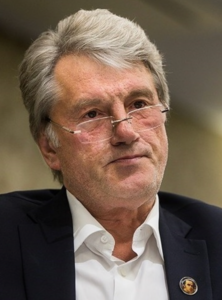
In today’s troubled world, of course, China is not the only cause for concern; far from it. We have only to look towards Ukraine and Russia’s brutal assault on it in the apparent belief that it should belong to Russia. Ukraine gained its independence from Russia in 1991, following the collapse of the Soviet Union. But while trying to maintain good relations with Russia, Ukraine’s then president, Leonid Kuchma, was making overtures towards the West. However, a 2002 general election led to a hung parliament and there were even allegations of electoral fraud. In 2004, fresh elections brought in Viktor Yanukovych as president, but it became clear that the election had been rigged and the opposition leader of the time, Viktor Yushchenko, headed mass protests in 2004. The election result was declared void by the Supreme Court and the election itself was re-run in December 2005, with Viktor Yushchenko becoming president, while relations with Russia went from bad to worse. The Ukrainian parliament voted to drop its attempts to join NATO (which had deeply distressed Moscow) and there was more unrest in 2013, with crowds demonstrating in the streets because Yanukovych refused to sign an Association Agreement with the EU. There were suggestions that his decision was a result of pressure from Russia. Thousands demonstrated, chanting “Ukraine is Europe”, which is geographically accurate, of course. At least 77 protestors in Kyiv were killed by security forces with Yanukovych fleeing to Russia to escape his very angry people. The opposition party took over the government. Russia under Vladimir Putin seems unable to accept that it is unlikely ever to win a popularity contest among its neighbours.
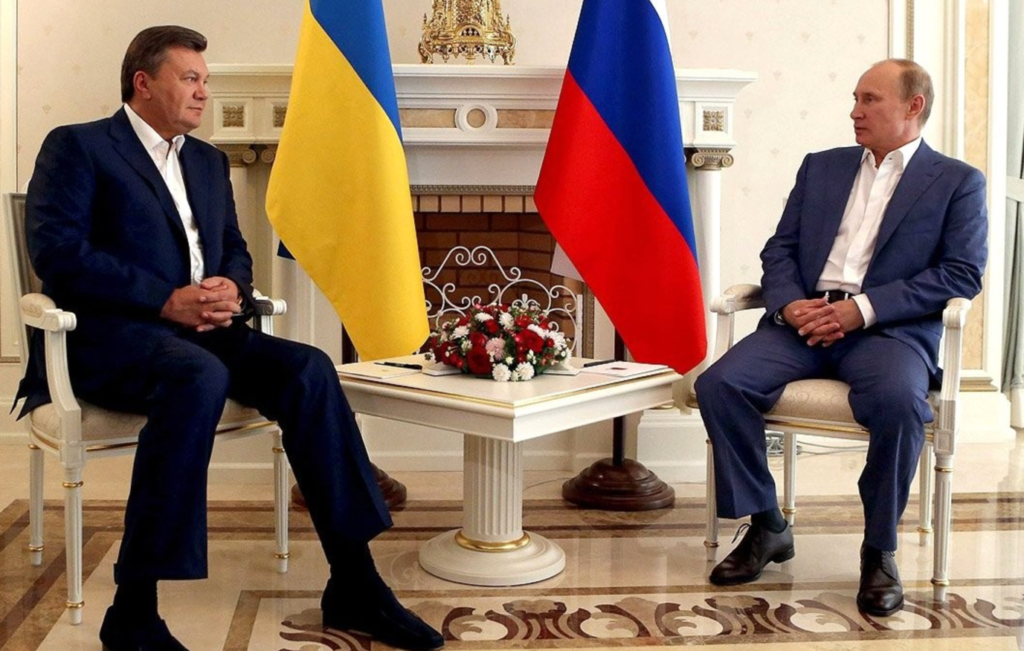
For those committed to protecting human rights and to free and fair elections, the work never comes to an end. Take the case of Georgia, for instance. The European Parliament discussed the slow erosion of media freedom and the safety of journalists trying to report from the country. Certainly, it’s not a comfortable place from which to report. The head of Mtatavari Arkhi TV, Nika Gvaramia, for instance, has had his appeal against his sentence rejected at the Tbilisi Court of Appeal, after he had been found guilty on what Lexmann described as “trumped up charges”. Lexmann told the European Parliament that she “abhors” the court’s decision, describing it as “yet another example of selective justice”, which she said puts Georgia’s path towards closer European involvement in question. “This kind of political persecution of the critics of the government under Irakli Garibashvili is putting Georgia’s EU perspective at risk,” Lexmann pointed out. “Such actions go against the European Commission’s recommendations. Most importantly, such actions go against the will of the Georgian people.” The sentence, like the rejection of the appeal, is clearly unjust and designed solely to silence a clever critic. Presumably, the government of Georgia also hopes it will discourage others from daring to criticise. “The message from the EU is clear,” Lexmann Tweeted. “It is now time for the Georgian government to deliver instead of making poor excuses.” She went on to say that at present, Bidzina Ivanishvili, illegally rules Georgia at Russia’s behest, obeying Moscow’s edicts. It’s worth noting that Ivanishvili is Georgia’s richest man and founder of the Georgian Dream Democratic Georgia Party. He made his money from metals and banking in Russia before returning home.
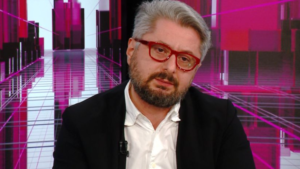
Russia is not the sort of country most people would probably want as a neighbour. Its leaders have very firm views about just how independent its neighbours should be allowed to be. Currently 20% of Georgia’s internationally recognized territory is under Russian military occupation. Russia does not allow the EU Monitoring Mission (EUMM) monitors to enter South Ossetia and Abkhazia, which is in violation of the Six Point Ceasefire Agreement. EUMM is mandated to cover the whole territory of Georgia, within the country’s internationally recognised borders, but the de facto authorities in Abkhazia and South Ossetia have so far denied access to the territories under their control. It’s clearly not a satisfactory arrangement but Russia seems disinterested in abiding by agreements, even those that have ended conflicts.
Following a diplomatic career, Lexmann joined the International Republican Institute as the Director of EU Regional Programmes. She is a Member of the Board of the Anton Tunega Foundation, named after one of the first martyrs of the communist regime in Central Europe. Lexmann lectures on international relations at the University of Kent in the UK as well as writing reports and articles. She joined the International Republican Institute as the Director of EU Regional Programmes. She is a Member of the Board of the Anton Tunega Foundation, named after one of the first martyrs of the communist regime in Central Europe. The foundation strives to support democracy by providing political education and supporting educational programmes raising awareness about the communist past. Lexmann also serves on the Advisory Board of ‘digiQ’, a Central European association for online safety and prevention. In fact, Lexmann has a wide variety of interests, but virtually all of them are devoted to protecting freedom of speech, freedom of thought and the protection of democracy itself. Looking at the world around us it seems unlikely that her work will ever be complete. For certain, however, she will continue to fight.

